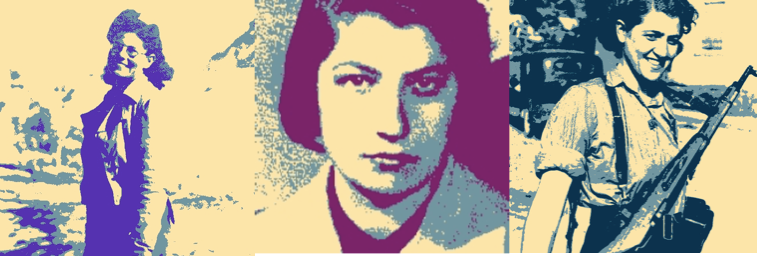Heroines of the Holocaust: New Frameworks of Resistance (Wagner College Holocaust Center Symposium)

June 15-16, 2022
International symposium organized by Professors Laura Morowitz (Professor of Visual Arts, Wagner College) and Lori Weintrob (Professor of History and Founding Director of the Wagner College Holocaust Center)
Cosponsored by the USC Dornsife Center for Advanced Genocide Research
The activities of women during the Holocaust have often been forgotten, erased, misunderstood, or intentionally distorted. Jewish women and those of all faiths fought with dignity, compassion and courage to save others from the murderous Nazi regime in over 30 nations. Often overlooked, women as well as men played critical roles in uprisings against the Nazis in over 50 ghettos, 18 forced labor camps and 5 concentration camps, including Auschwitz. Women were critical to the Jewish underground and other resistance networks both as armed fighters and as strategists and couriers of intelligence and false papers. Women played essential roles operating educational, cultural and humanitarian initiatives. In other genocides, women also faced horrendous atrocities, yet distinguished themselves with resilience and acts of moral courage. This symposium hopes to create a new narrative around agency in the Shoah and other genocides, which may inspire transformative activism today.
From the groundbreaking 1983 conference on “Women and the Holocaust” at Stern College to the 2018 symposium on “Women, the Holocaust and Genocide” at Seton Hill University, research on gender issues has grown exponentially. Innumerable books, conferences, panels, films, journal special issues, and groups such as Remember the Women Institute now document the inspiring lives of female participants. Yet there remain many untold stories of women fighting back against the Nazis with pistols or pen. The leadership strategies, networks of defiance, and testimony of better-known activists such as Vitka Kempner-Kovner, Zivia Lubetkin, Vladka Meed, Sara Fortis, Gisi Fleishman, Marie-Madeleine Fourcade, Nadezhda Popova, Haviva Reik, Edith Bruck, Friedl Dicker-Brandeis and Roza Robota, among others, still merit far more attention; their lives, too, should become part of the canon of Holocaust study. How is our understanding of the Shoah – and the central question of how it happened – impacted and re-conceptualized by knowing about the activities of female resisters and rescuers? This symposium will bring together international scholars working on this topic to share new approaches, projects and information on well-known women, as well as those whose stories remain shrouded in obscurity. Moreover, we will be hosting workshops and panels for teachers of all age groups, to enable them to carry this research, and the stories of these inspiring women, into their classrooms for transformative lessons on history, moral courage and upstander behavior.
Visit the symposium website here.